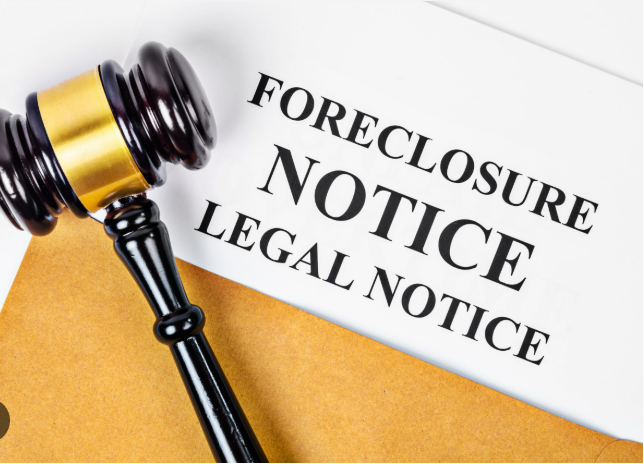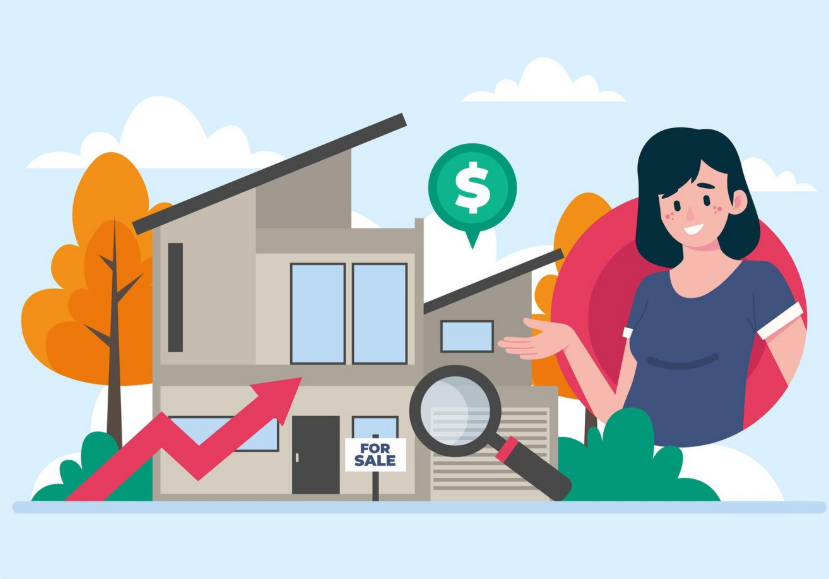Foreclosure is one of the most upsetting situations a homeowner can face. For many homeowners facing foreclosure, the prospect of losing your house, along with the financial and emotional consequences, can be daunting. If you are a homeowner in Atlanta who is facing foreclosure, the good news is that you are not alone, and there are proven solutions that can help you reclaim control. Georgia homeowners, in particular, face unique challenges and options due to the state’s specific foreclosure laws and available local resources.
In this book, we will show you how to stop foreclosure and explore various foreclosure prevention options with clarity, haste, and compassion. Whether you’re in the early stages of late payments or have already gotten a notice of default, time is still on your side—if you move fast and intelligently.
Understanding Foreclosures in Atlanta
When a borrower stops making payments on a loan, lenders may utilize foreclosure to recover the remaining sum. In Georgia, and particularly in Atlanta, foreclosures are often non-judicial, which means they do not require court approval. This can greatly speed up the process, emphasizing the importance of homeowners acting quickly. Mortgage servicers play a key role in managing the foreclosure process, communicating with borrowers, and providing information about available options during financial difficulties.
The foreclosure process normally begins when you miss three or more consecutive mortgage payments. You’ll first get a notice of default, followed by a notice of sale alerting you that your property will be auctioned off. The foreclosure sale is a legal process where the lender auctions the property, often at a public auction, to recover the outstanding mortgage debt. In Georgia, foreclosure sales are typically public auctions and are governed by specific legal procedures. The notice of sale will specify the scheduled foreclosure date, and before this date, several steps must be completed, including providing notices and publishing advertisements. Georgia law requires the notice of foreclosure to be published in the official county newspaper for four consecutive weeks before the sale. In Georgia, this notice may be issued as early as 30 days after the default. Given the short timescale, understanding how to avert foreclosure is not only critical—but also imperative.
Know Your Rights as a Homeowner
When facing foreclosure, understanding your rights as a homeowner is one of your most powerful tools. Federal law and Georgia’s foreclosure laws, as well as guidelines from the federal trade commission, provide important protections that can help you avoid foreclosure and ensure you’re treated fairly throughout the foreclosure process. For example, you have the right to request detailed information about your mortgage, review your loan documents, and dispute any errors you find. The Real Estate Settlement Procedures Act (RESPA) gives you the ability to demand corrections and receive timely responses from your mortgage servicer.
If you’re on active duty, the Servicemembers Civil Relief Act (SCRA) offers additional foreclosure prevention options, such as capping interest rates and restricting foreclosure actions while you serve. These protections are designed to prevent wrongful foreclosure and give you time to address your financial situation. Housing counselors, especially those approved by HUD, can help you understand your rights and guide you through the foreclosure process. By staying informed and proactive, you can better protect your home and take advantage of every foreclosure prevention resource available to you.
Communicate with Your Lender Immediately
Homeowners experiencing trouble paying their mortgage often make the mistake of disregarding correspondence from their mortgage lender. While it may be painful to acknowledge you are behind on payments, avoiding your lender will only hasten the foreclosure process. Contact your lender or servicer as soon as you believe you are about to miss a payment, or as soon as you know you have missed payments. Mortgage firms frequently have loss mitigation divisions that might provide alternatives to foreclosure. Many types of mortgages may be eligible for assistance programs or alternative solutions.
Explaining your difficulty may lead to alternatives such as temporary forbearance, loan modifications, debt modification, or repayment arrangements that can help make your monthly payment or monthly payments more manageable. Lenders want to reach an agreement rather than pursue foreclosure, which may be costly and time-consuming for them. Some solutions, such as loan modifications or short sales, are only available if the lender agrees. When chatting with your lender, be open about your financial condition and inquire about all possible possibilities.
Explore Loan Modification and Forbearance
When you’re still living in the home and want to maintain it, loan modification and forbearance are two of the most successful techniques to avoid foreclosure. If you are experiencing financial hardship, such as job loss or significant medical expenses, you may qualify for assistance programs that offer a temporary reduction in your mortgage payment . Eligibility for some options may also depend on whether you have a conventional loan.
Loan modifications entail permanently altering the conditions of your mortgage to make your monthly payments more affordable. This can involve extending the loan term, lowering the interest rate, or even adding the late amount to the principal debt. To qualify, you must show verification of your income, spending, and financial hardship.
Forbearance is a temporary suspension or reduction in monthly payments that is commonly utilized during short-term financial challenges such as medical emergencies or job loss. During the COVID-19 outbreak, forbearance programs enabled thousands of Atlanta residents to remain in their homes. Many lenders still provide these options in hardship instances. Remember that forbearance is not forgiveness; after the period is up, you’ll need to come up with a repayment plan.
Before agreeing to any changes, review your mortgage rights to understand your legal protections and options. Both of these choices necessitate prompt communication with your lender and, in some situations, the assistance of a HUD-approved housing counselor. It is crucial to ensure that any loan modification or forbearance plan is documented in a written agreement to protect all parties involved.
Leverage Negotiation Strategies with Your Lender
Open and honest communication with your lender is essential when you’re having trouble making mortgage payments. The sooner you contact your lender and provide written notice of your situation , the more options you’ll have to avoid foreclosure. Be prepared to explain your financial situation clearly and provide documentation that supports your case, such as pay stubs, medical bills, or evidence of job loss.
Ask your lender about loan modification programs that could lower your monthly mortgage payments or adjust your loan terms to make them more manageable. You can also discuss repayment plans that allow you to catch up on missed payments over time, or request a forbearance agreement for temporary relief. Throughout the negotiation process, keep detailed records of every conversation, including dates, names, and what was discussed. Persistence and professionalism can go a long way in finding a solution that helps you keep your home and avoid foreclosure. Remember, your lender often prefers to work with you rather than proceed with foreclosure, so don’t hesitate to advocate for yourself.
Consider Selling Your Home Before Foreclosure
If you recognize you won’t be able to keep your house indefinitely, selling before foreclosure is generally a wise and financially reasonable move. This option is especially advantageous if your property has equity, which means it is worth more than you owe on the mortgage.
Selling your property ahead of schedule allows you to pay down the remaining mortgages, avoid foreclosure, and maybe walk away with cash in hand. More crucially, this way protects your credit score from the long-term consequences of a foreclosure, which can remain on your report for up to seven years.
Another alternative to selling is a deed in lieu or deed in lieu of foreclosure, where you voluntarily transfer ownership of the property to the lender to avoid foreclosure. This option is only available if the lender agrees, and it is essential to have a written agreement outlining the terms of the transfer to ensure legal protection for both parties.
In hot housing markets like Atlanta, where demand for homes remains high in many communities, a traditional or cash transaction can be completed swiftly. If you have limited time and need to sell quickly, contacting a local cash house buyer may be a realistic option. Cash purchasers can close in as little as 7-10 days, allowing you to escape foreclosure and go on with dignity.
Evaluate Short Sale and Bankruptcy Options
If you’re facing foreclosure and traditional solutions aren’t enough, it’s important to consider all your options—including short sales and bankruptcy. A short sale allows you to sell your home for less than what you owe on your mortgage, with your lender’s approval, or consider a bankruptcy filing as an alternative . While this can help you avoid foreclosure proceedings and the long-term impact on your credit, it may have tax implications and will still affect your credit score.
Bankruptcy is another option that can temporarily stop foreclosure and give you time to reorganize your finances. Chapter 13 bankruptcy, in particular, lets you keep your home while you catch up on missed payments through a court-approved repayment plan. Chapter 7 bankruptcy can eliminate certain debts but may not always stop foreclosure. Because bankruptcy is a complex legal process with lasting consequences, and mortgage servicers must be informed it’s crucial to consult with a qualified bankruptcy attorney before making any decisions. By carefully evaluating short sale and bankruptcy options, you can choose the best path to stop foreclosure and protect your financial future.
Use Georgia’s Foreclosure Laws to Your Advantage
While Georgia’s non-judicial foreclosure process is quick, state law provides some safeguards that homeowners can employ to delay or prevent foreclosure. One alternative is a bankruptcy filing, such as Chapter 13, which will immediately halt the foreclosure process via an “automatic stay.” This legal step precludes lenders from proceeding with foreclosure while your bankruptcy case is pending. In addition to state protections, certain federal laws, like Regulation X under the Code of Federal Regulations, provide additional safeguards for homeowners.
In Chapter 13, you create a court-approved repayment plan that permits you to catch up on missing mortgage payments over time, usually 3 to 5 years. Unlike Chapter 7, which may necessitate asset liquidation, Chapter 13 is particularly designed to assist you maintain your property.
Bankruptcy should never be handled lightly, but if you have no other options and want to keep your property, it can be a lifesaver. If you believe your rights have been violated during the foreclosure process, you may also consider filing suit against your lender. To fully understand all available options and protections, seek legal help from a qualified professional or an experienced Atlanta bankruptcy attorney.
Apply to Georgia’s Homeowner Assistance Programs
Atlanta residents facing foreclosure can take advantage of state and federal programs meant to give emergency aid. For example, the Georgia Homeowner Assistance Fund (HAF) provides financial assistance to assist homeowners who have endured hardship as a result of the COVID-19 outbreak. These monies can be used to cover mortgage payments, past-due property taxes, insurance, and utilities.
Eligibility conditions vary, and funding is limited, so apply as soon as possible if you qualify. A U.S. Department of Housing and Urban Development (HUD)-approved housing consultant can assist you in navigating these programs and submitting your application. HUD and other government agencies focused on housing and urban development offer programs that support urban development and community revitalization.
Furthermore, local organizations, non-profits, and housing organizations in Atlanta routinely provide free foreclosure prevention programs, legal aid, and one-on-one counseling to assist homeowners. A referral service can help connect you with the right resources, including local organizations and state-funded options. Always seek professional advice from a qualified attorney, housing counselors real estate professional, or HUD-approved counselor before signing any legal documents or applying for assistance programs.
Take Advantage of Special Protections (Military, Elderly, etc.)
Some homeowners qualify for special protections and assistance programs that can make a significant difference when facing foreclosure. If you are on active duty, the Servicemembers Civil Relief Act (SCRA) provides important safeguards, such as limiting interest rates on your mortgage and restricting foreclosure actions while you serve. Veterans can also access support through the Department of Veterans Affairs (VA), which offers foreclosure prevention assistance and counseling.
Elderly homeowners in Georgia may benefit from state programs like the HomeSafe Georgia program, which provides financial aid and resources to help avoid foreclosure. It’s important to research and apply for any programs you may be eligible for, as these protections can offer extra time, financial relief, or legal support. By taking advantage of these special protections, you can access additional resources to help you keep your home and avoid foreclosure, even in challenging circumstances.
Manage Your Finances and Assets Proactively
Staying ahead of financial challenges is key to preventing foreclosure. Start by reviewing your monthly budget and cutting unnecessary expenses so you can prioritize your mortgage payments. If you’re struggling to make ends meet, consider delaying payments on less critical debts, like credit cards, to focus on your mortgage. Look for ways to increase your income, such as taking on extra work or selling unused assets, to help cover your monthly mortgage payments.
Working with a housing counselor or financial advisor can help you create a realistic plan to get your mortgage current and avoid foreclosure. These professionals can also connect you with local resources and foreclosure prevention programs. The sooner you address your financial situation and seek help, the more options you’ll have to protect your home. By managing your finances and assets proactively, you can reduce your risk of foreclosure and regain control over your financial future.
Avoid Foreclosure Scams
Unfortunately, homeowners in hardship are frequently targeted by scammers offering to “rescue” them from foreclosure. Many of these are for profit companies that charge a hefty fee—sometimes equal to several months’ mortgage payments—for services that may be available for free from your lender or a HUD-approved counselor. These schemes may include upfront payments, phony legal counsel, or fraudulent sales agreements, which might cost you your house and whatever equity you’ve accumulated.
As a rule of thumb, if someone promises to stop foreclosure without viewing your documents or charges hefty upfront fees, it’s probably a fraud. Consumer protection should be a top priority when evaluating any offers. Work only with licensed professionals and HUD-approved counselors. Never sign over the deed to your home unless you fully understand the repercussions.
The more knowledgeable you are, the more protected you will be. If something feels odd, follow your instincts and get a second view. If you suspect a scam, report it to your state attorney general’s office.
Partner with a Reputable Cash Home Buyer
If keeping the house is no longer possible, but you want to avoid the credit harm and worry of foreclosure, selling to a local, trustworthy cash home buyer can be a great option. The process may also involve coordination with your mortgage company to ensure all requirements are met. These purchasers specialize in assisting homeowners in difficult situations—such as foreclosure, divorce, or inherited property—by making quick, as-is acquisitions with no agent fees or closing charges.
A reputable cash buyer will guide you through the procedure, make a reasonable offer, and guarantee that everything is done legally and transparently. In Atlanta’s thriving real estate market, many homeowners facing foreclosure discover that this option provides the quickest and most straightforward road to relief.
Just make sure to examine the buyer’s reputation, including reviews, testimonials, and how long they’ve been in business in the area. Carefully review every legal document before signing, and consider consulting a private attorney for legal advice before finalizing the sale. A professional cash buyer will not put you under pressure and will give you time to consider the offer, including the option to contact with a real estate attorney.
Take Immediate Action—Time Is Not on Your Side
The most important factor in avoiding foreclosure is responding quickly. The more you wait, the fewer choices you will have. Every day counts, whether you want to keep your property or sell it before it goes into foreclosure.
Begin by understanding your mortgage status, contacting your lender, and seeking professional assistance. Many organizations assist homeowners by providing support and guidance to help prevent foreclosure and navigate available options. Before foreclosure is finalized, consider all options, including loan modification, selling, bankruptcy, and state aid. The good news is that even if you’ve missed payments or received default notifications, you can still influence the outcome.
Remember, foreclosure affects more than just your property. It affects your credit, your ability to rent or buy in the future, and your overall financial situation. If you are facing legal challenges or need free legal assistance, the Atlanta Legal Aid Society is a valuable resource for homeowners in the Atlanta area. With the correct information and assistance, you can stop foreclosure in its tracks and forge a new route forward.
Conclusion
If you’re looking for ways to avert foreclosure in Atlanta, the key is to take informed, timely, and strategic action. You are not powerless; whether you want to save your property or walk away without a foreclosure on your record, there are options available.
The initial step is the most crucial. Reach out, seek advice, and take action today.
If you want to sell your Atlanta house quickly to avoid foreclosure, contact a reputable local cash buyer to learn more about your alternatives. The sooner you act, the more power you’ll have over your destiny.




